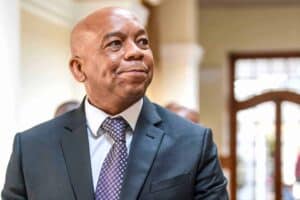The demand for R3.8 billion is one of the largest yet made in South Africa.

If we had one rand for every time an ANC bigwig has promised an “end to corruption”, we could probably have paid off Eskom’s total debt.
So, it is beyond ironic that it is that ailing, bled-dry public power utility which looks like being the first institution, of any kind, to hold some of the state capture network’s denizens accountable. Eskom, alongside the Special Investigating Unit, has issued a summons in the High Court in Pretoria in an attempt to recover funds from former Eskom executives, former board members, members of the Gupta family and their associates.
Eskom says the funds were looted in a “concerted effort to divert financial resources from Eskom to illegally benefit the Gupta family and entities controlled by the said family and their associates during their 2015-16 acquisition of the operations of Optimum Coal Holdings Limited”. And it’s not peanuts that Eskom is after, either.
Also read: Eskom wants the Guptas and other former execs to pay back R3.8bn
The demand is for R3.8 billion, one of the largest yet made in South Africa. The move against the Guptas and their enablers – including Brian Molefe, Matshela Koko, Suzanne Daniels, Ben Ngubane, Mark Pamensky, Mosebenzi Zwane and Salim Essa – has a similarity to the eventual conviction of notorious American gangster Al Capone.
He was involved in everything from booze running to extortion to murder, yet in the end, he got nabbed for tax evasion. A criminal prosecution requires a higher standard of proof – beyond reasonable doubt, as opposed to a balance of probabilities – than that of a civil matter.
Which means Eskom, through its new boss, Andre de Ruyter, is more likely to bring these people to book – and succeed – than the legions of investigators in the National Prosecuting Authority and the Hawks. And therein might lie a lesson for the government … if only they would listen.
For more news your way, download The Citizen’s app for iOS and Android.






